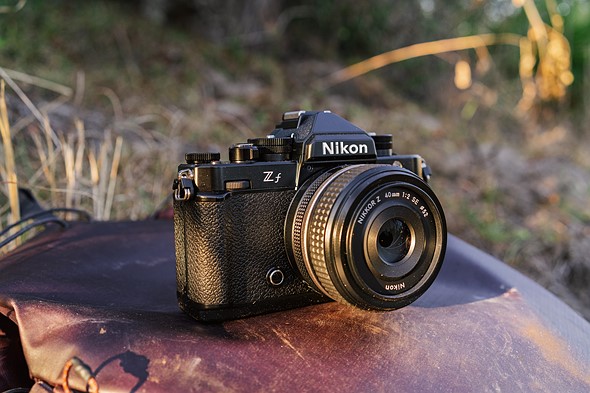
Credit: Gabriele Barni Late 2011 was a period of big changes for me. I had just finished up college, an internship, and landed my first 'big boy' job at Puget Sound Energy doing photo and video for their communications department.
It was also around this time that I got my very first smartphone, an act which would forever change my perspectives on photography.
Okay, well, it was my second smartphone that did that. My first was a Blackberry Bold, which was a Puget Sound Energy company phone, and I very briefly thought that it was amazing. I was wrong. You see, wanting to keep my work and personal life somewhat separate, I figured I should purchase my own smartphone for personal use. So I picked up a just-released iPhone 4S, and the Blackberry felt prehistoric in comparison.
With a decent camera in my pocket at all times, I of course started an Instagram account and promptly put a photo of a bagel sandwich up for all the world to see. Yes, this is literally the first image on my Instagram profile, and it's probably damaging my credibility to this day.
A lot of people credit cell phone cameras with the death of the compact camera, but I think the iPhone 4S was one of the first cell phones with quality that could really rival the PowerShots and Coolpix's of the day. In high school, VGA camera phones were all the rage, but a lot of us still carried around a dedicated compact camera for 'real' photos. *
But with the iPhone 4S, you got an 8MP sensor, a reasonably fast F2. 4 lens, 1080p HD video recording and a Retina high-density display that was probably the best display I'd ever seen up until that point. Suddenly, for an average consumer to get appreciably better image quality, you had to step up to a reasonably high-end camera, and that's why I think the iPhone 4S was the final nail in the compact camera's coffin. **
Of course the Sony RX100 came out the following summer and, though it did inspire eventual competition and somewhat stemmed the hemorrhaging sales of compact cameras, the $650 MSRP was a sign that dedicated photography tools capable of truly better output than a phone were going to be pushing ever further up-market. In other words, further out of the reach of average consumers, reinforcing for those consumers that a camera someone already has on his or her phone is going to be good enough. ***
For the benefit of mankind and my personal friendships, I got over my strange obsession with posting images of my meals, and started taking pictures of other things. Cropped to taste.
In any case, I was lucky enough to have a DSLR at the time for more serious work, but whenever I didn't want to lug that around, the iPhone 4S was there. I even ended up preferring the phone to an original Olympus Pen Mini for casual photography because of its speed, overall image quality and the ability to quickly share images to the web. Without Google Drive or Wi-Fi pairing, it was an ordeal to get images onto the iPhone from any source other than the internal camera.
In fact, looking back on my own photos from early on with the 4S, I'm struck by how often I thought that an Instagram filter was an improvement, when really, some more careful framing and more conservative editing would have been better advised. But maybe there's more to it. I can see now that the iPhone 4S's camera was good enough that it wasn't the limiting factor for me at the time, it was just my own skill and taste (or in this case, a lack thereof).
This is one of the less egregious crooked horizons and 'filter jobs' I could find on the early days of my Instagram account, but it still looks darn overcooked to me these days.
Something about how most of the images I can find from this camera are uploaded and super compressed and all that.
As I grew in my career and as a photographer, I ended up getting a cheap Moto G when the iPhone 4S started to feel a little dated. I should have known better. I had become absolutely addicted to having at least a decent camera in my pocket at all times, and images from the Moto G just looked washout out and 'cheap' in comparison to the iPhone, despite having the same 8MP resolution.
That 'addiction' to a decent camera is something that has reached epidemic proportions throughout the world. For better or for worse, photography has been democratized and commoditized, and there just isn't any going back – and while yes, we can thank smartphones in general for that, the iPhone 4S was one of the more influential players in changing the way that we view smartphone cameras and smartphone photography.
Photo by Scott Everett
* 'Real' photos usually included my 1980 Datsun 210, or trying to perfectly time the shooting of an unopened soda can with a bow and arrow. You know. High school kid stuff.
** The advent of 1080p video capture in phones is also probably why Flip and other pocket camcorders disappeared seemingly overnight.
*** After having gotten used to the iPhone 4S, I still thought for a while I had a need for a cheap, carry-everywhere camera, maybe with an optical zoom. So I got a Canon PowerShot A1200 at Costco, and the photos were absolutely horrible in comparison to the phone. For a long while, I swore off ever having a camera that lay somewhere between my iPhone and my D80.
. dpreview.com2017-8-10 13:00

















